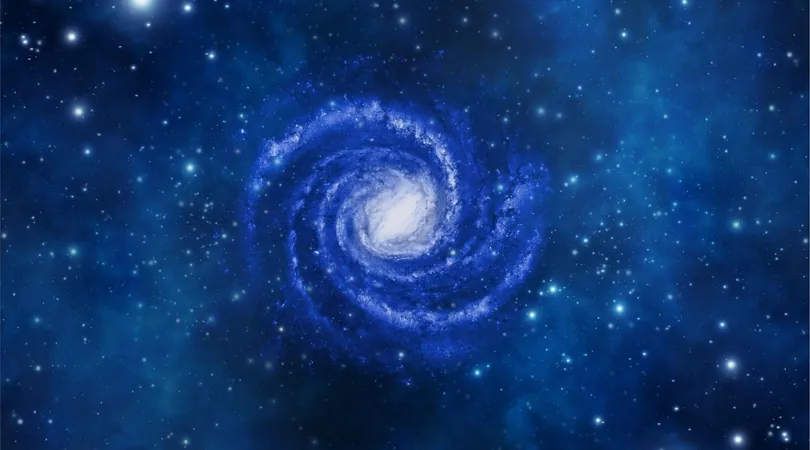
Could the Higgs Boson Be Responsible for the Universe's Expansion?
2025-04-09
Author: Wei Ling
Groundbreaking Discovery in Cosmology
A team of scientists may have stumbled upon a revolutionary answer to one of cosmology's biggest mysteries: what triggered the Universe's astonishing expansion right after the Big Bang?
The Muffin Analogy Explained
Humberto Gilmer, a postdoctoral researcher at Brown University and one of the study's authors, described the Universe's expansion using an intriguing analogy: imagine a muffin with blueberries baked inside. As the muffin rises, the blueberries move apart from one another, even as they remain stationary in the batter. Similarly, our Universe is expanding, with inflation representing a time of incredibly rapid growth—an open question the researchers aimed to solve.
The Role of Inflation
The 'inflation' theory posits that the Universe experienced an explosive expansion in the first moments after the Big Bang, enlarging an astonishingly vast amount nearly instantly—approximately a trillion quadrillion times its size. This phenomenon helps explain why our Universe appears relatively flat and how galaxies and cosmic structures formed by amplifying minute energy differences.
Inflaton Field vs. Higgs Boson
Historically, scientists have attributed this inflation to a theoretical entity known as the inflaton field, comprised of hypothetical particles called inflatons. Gilmer explains that when sufficient mathematical calculations are made, it suggests that the simplest way to achieve inflation involves this field's non-zero value existing throughout space, causing gravity to behave more like an opposing force than a contracting one.
Introducing a New Candidate: The Higgs Boson
In a fascinating twist, researchers propose that the elusive Higgs boson—discovered in 2012 at the Large Hadron Collider—could play the role of the inflaton. The Higgs boson is unique among fundamental particles because it has no spin, a property it shares with the theoretical inflaton.
A Paradigm Shift in Particle Physics
However, within the established Standard Model, the Higgs boson's interactions do not account for an expansion consistent with astronomical observations. To resolve this, the team suggested a fresh perspective that modifies the Standard Model, allowing the Higgs to induce inflation.
The Composite Nature of the Higgs Boson?
One compelling aspect of their theory is the idea that the Higgs boson might not be an elementary particle like electrons or quarks, but rather a composite particle similar to protons and neutrons. Yet, the specific components that constitute a Higgs boson remain unknown.
Future Directions and Experimental Confirmation
The theory suggests that the Higgs boson could behave differently than current understanding allows, potentially hinting at undiscovered particles. However, confirming that inflation truly occurred is paramount. As Gilmer noted, achieving this will require substantial experimental evidence, with gravitational wave experiments like the European Space Agency's LISA providing promising avenues for discovery.
What Lies Ahead?
If inflation is validated, further research will focus on identifying which inflation theory holds true. The research team recognizes that their work requires additional exploration to establish a solid footing in the realm of cosmology and particle physics. According to Gilmer, upcoming studies will include an in-depth analysis of their model.
This promising research provides a fresh wave of excitement in the scientific community, with the potential to reshape our understanding of the Universe's origins.

 Brasil (PT)
Brasil (PT)
 Canada (EN)
Canada (EN)
 Chile (ES)
Chile (ES)
 Česko (CS)
Česko (CS)
 대한민국 (KO)
대한민국 (KO)
 España (ES)
España (ES)
 France (FR)
France (FR)
 Hong Kong (EN)
Hong Kong (EN)
 Italia (IT)
Italia (IT)
 日本 (JA)
日本 (JA)
 Magyarország (HU)
Magyarország (HU)
 Norge (NO)
Norge (NO)
 Polska (PL)
Polska (PL)
 Schweiz (DE)
Schweiz (DE)
 Singapore (EN)
Singapore (EN)
 Sverige (SV)
Sverige (SV)
 Suomi (FI)
Suomi (FI)
 Türkiye (TR)
Türkiye (TR)
 الإمارات العربية المتحدة (AR)
الإمارات العربية المتحدة (AR)